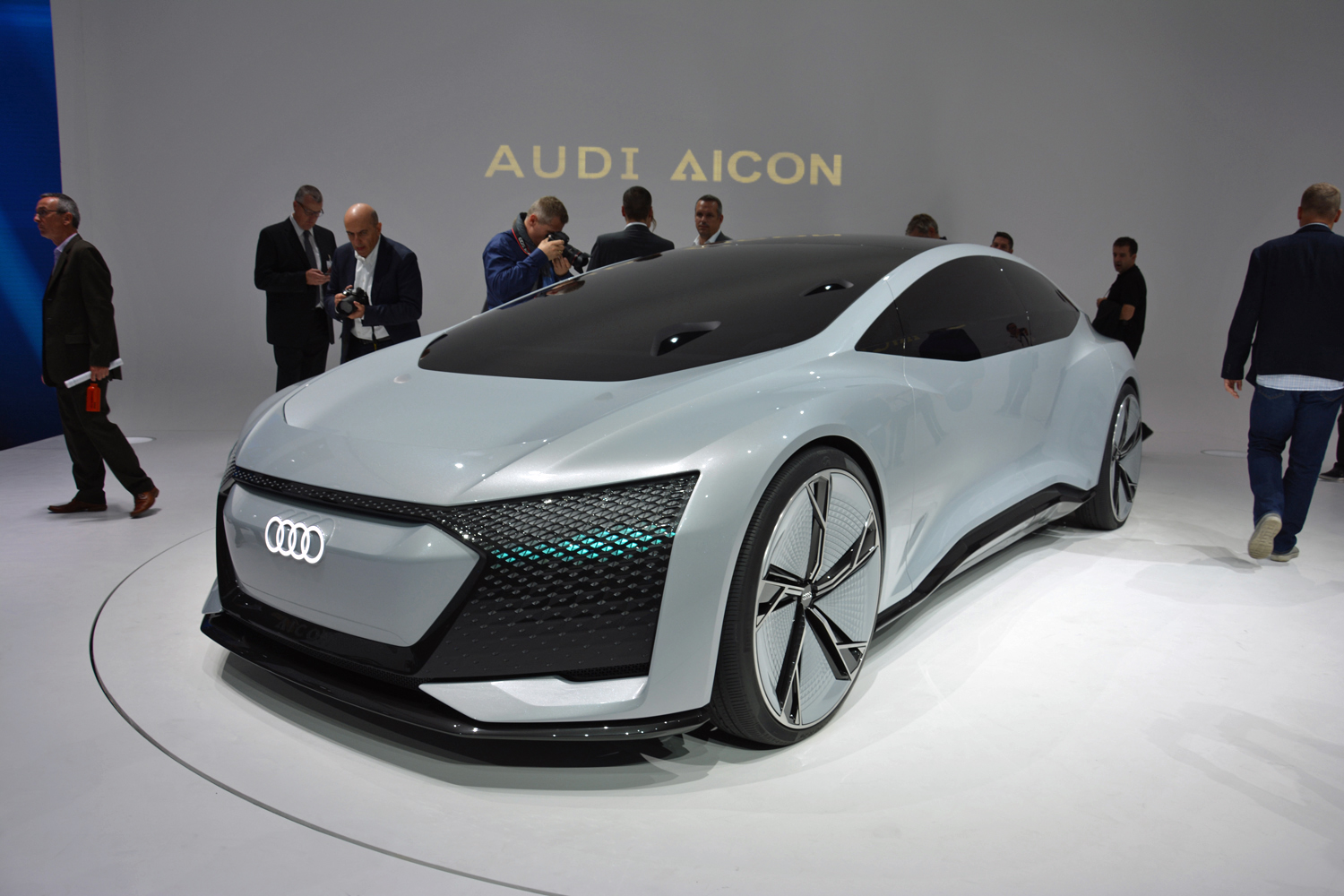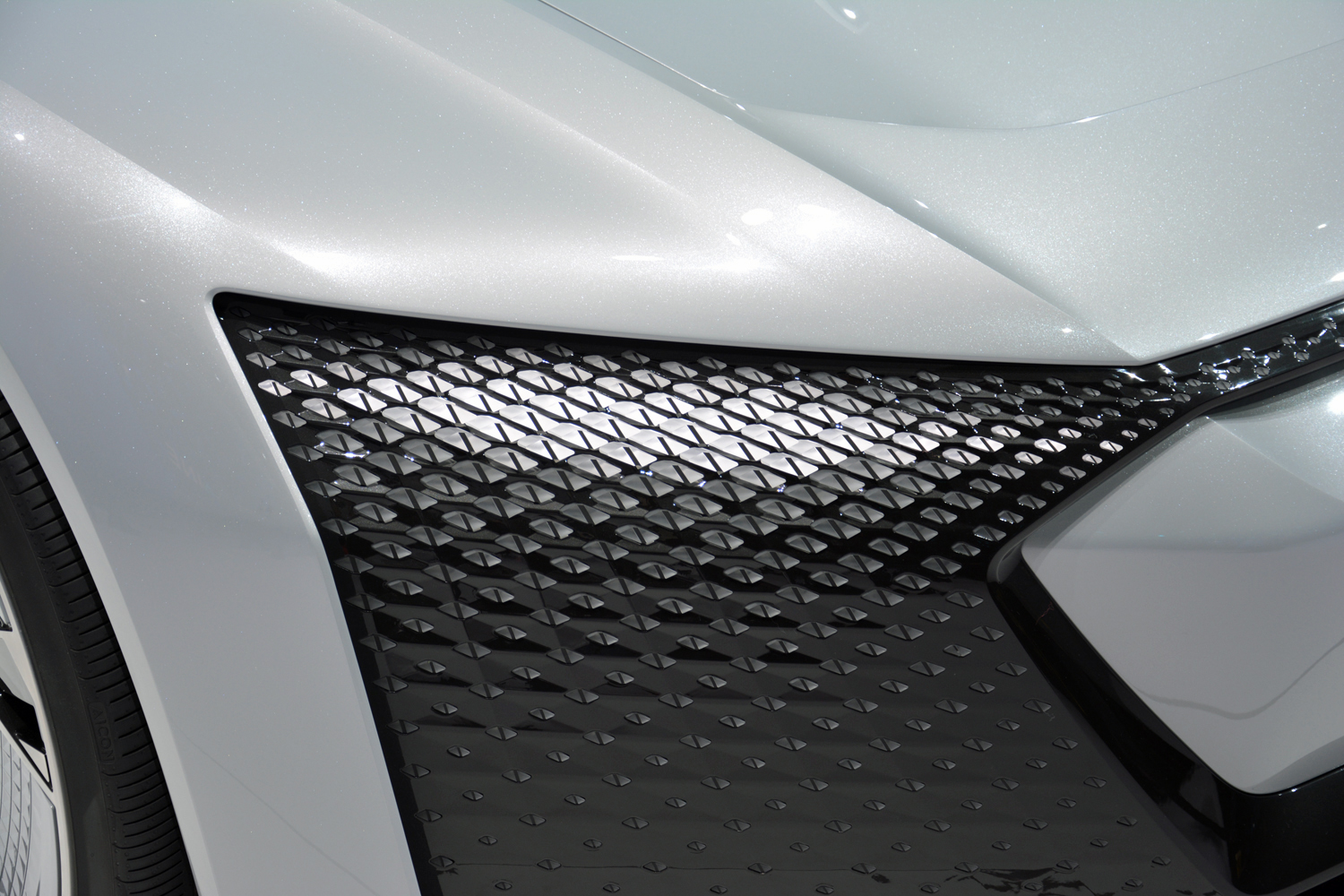At the 2017 Frankfurt Motor Show, Audi is proving that a future of autonomous driving doesn’t have to be boring.
The Audi Aicon concept is an electric self-driving car that attempts to exude the same style, luxury, and air of desirability as Audi’s current, human-driven models. That starts with the exterior, which borrows current Audi design cues like a massive grille, but also takes full advantage of the Aicon’s electric powertrain and lack of manual controls by adopting exaggerated proportions that push the wheels out to the corners, and make no allowance for an engine compartment or trunk.
The grille — which is blanked off, since electric cars don’t need radiators — will be used on future production Audi electric cars. It’s flanked by digital displays that take the place of conventional headlights. The displays, which are duplicated in the rear to function as taillights, can be configured in a number of different ways. Audi says they are meant to resemble eyes, and can even make “eye contact” with pedestrians.
It may sound creepy, but self-driving cars will need a way to communicate with pedestrians, just as human drivers do now with eye contact and gestures. What they won’t need, according to Audi, are long-range headlights. Instead, the Aicon uses its onboard sensors to “see” in the dark.
Swing open the suicide doors, and the interior is configured more like a living room than anything recognizably automotive. It features two individual front seats that slide and swivel, and a rear bench. The seats were designed to replicate the look and feel of lounge chairs, Audi says, while the generous amount of glass was meant to convey a feeling of spaciousness.
You won’t find a steering wheel or pedals, just a screen that wraps around the entire front of the cabin. Infotainment functions can be controlled by touch, voice, or even eye tracking. Not having to drive frees up plenty of time for doing work, watching videos, or fooling around on social media, and Audi says all of those needs can be accommodated.
While its occupants are scanning Instagram posts, the Aicon whisks itself along using four electric motors, which produce a total of 260 horsepower and 406 pound-feet of torque. The battery pack has enough capacity for 497 miles of range, and can be recharged to 80 percent capacity in less than 30 minutes using a high-speed charging system, Audi claims. A fully active suspension system uses a combination of air springs and electric actuators to iron out bumps.
The Aicon certainly has some impressive features, but they may be a bit too far out. Audi says the Aicon is designed for a future where autonomous cars are a common sight on every street, something that probably won’t become a reality for years, if not decades. While companies are testing self-driving cars on public roads, it’s a long leap between that and the total replacement of human drivers by machines.










